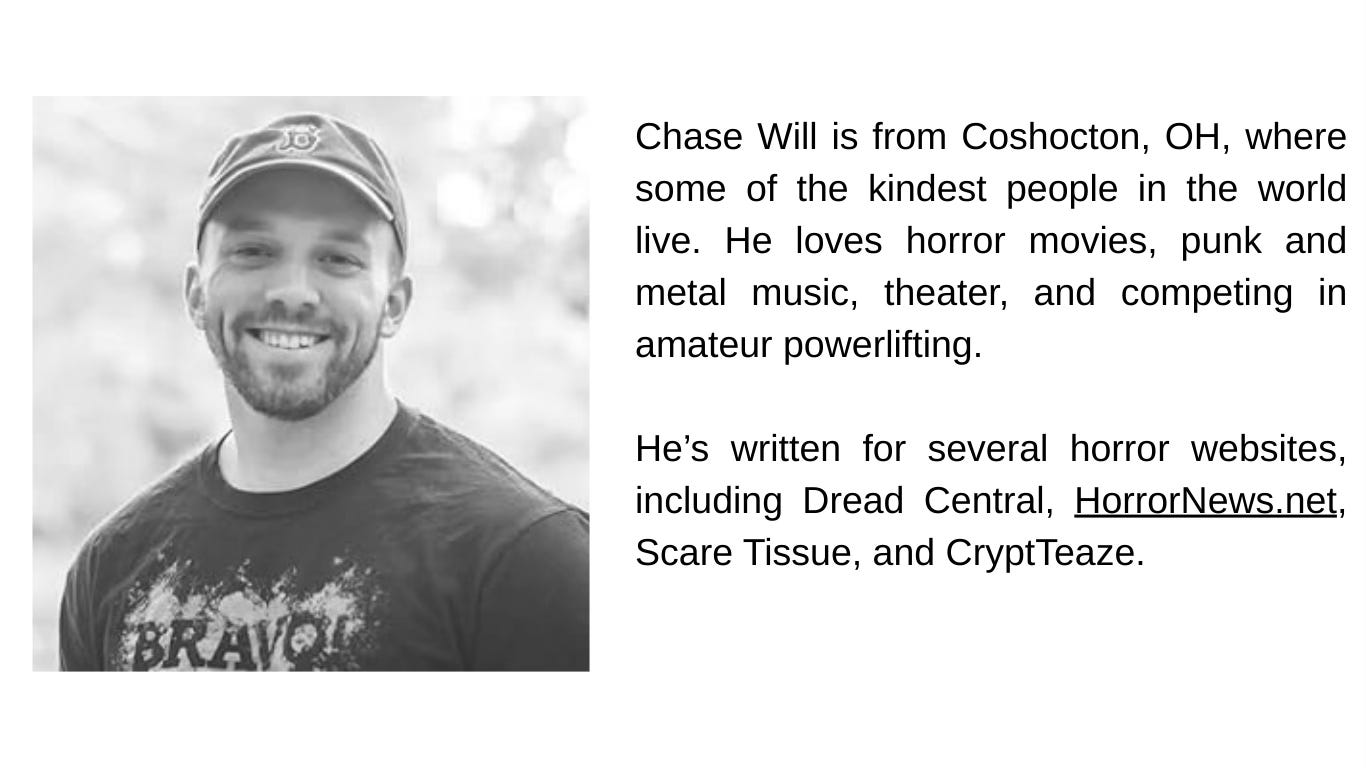Tell us about yourself and your most current project/s?
I come from Coshocton, Ohio, a small town no one’s ever heard of in the middle of nowhere. I grew up near railroad tracks and a chemical runoff creek, which may explain why I’m a little weird in the head and love horror so much. I’m a pretty easygoing guy, and my constant goal is to entertain audiences with stories they haven’t heard before, at least not in the way I tell them. My latest project is the Where Dreams Are Entombed series, which just wrapped with the novel Grand Finale.
Where did the inspiration/idea come for this project?
Where Dreams Are Entombed came from an angry, bitter place, to be honest. I was a frustrated thirty-something author without much of a fanbase, watching YouTube celebrities rake in money for bullshit content and passing it off as “art.” The series started with a typical question: how far will a man go to achieve his dream? The main character of the first book, Tommy Welter, is a washed up rockstar with regional success, but he wants more out of life, the way we all tend to do. But the thing about pursuing success is, you can never have enough. You grab onto one golden ring, then you’re reaching for the next one, and it really never ends. My thesis for Where Dreams Are Entombed is art can and should be dangerous, but if all you care about is fame, you’re in for a world of trouble.
What does the writing process look like for you?
I start every day at 4 a.m., typically with a weightlifting session and an energy drink. Then I go home, get my bearings, and write for a few hours. I typically get in about 1,200 words, or four and a half typed pages. If I’m one thing, it’s consistent, so I can always count on having a new first draft every few months. Editing’s a bitch, though, as any writer worth his salt can confirm.
How do you handle writer’s block?
Honestly, I just push through it. I like to write all my first drafts by hand, which I feel gets me “closer” to the story I’m telling and preemptively wards off writer’s block. If I’m ever stuck on a project, which has happened before, I simply move onto something else and come back to the initial project with a fresh head. Distance helps immensely, and I can’t think of anything less productive than banging your head against the keyboard hoping something genius will
How do you feed your creativity when feeling drained?
Caffeine and liquor, mostly. Just kidding. When the creative well’s run dry, I tend to latch onto friends and try to find inspiration through activity. I also journal a lot, which is good for keeping your writing skills sharp. Burnout’s never good, but when it happens, you just have to be as patient with your imagination as you’d be with a stubborn child. If you lose your cool, you’ll lose the story and end up with one hell of a headache.
What advice would you give writers’ who feel stuck or uninspired?
I’d say go read books or watch movies that inspired you to be an artist in the first place. Remind yourself why you got into this business, and why you’re passionate about it. You have the ability, but you also need the tenacity. Writing can be vicious at times, and you have to constantly fight off negativity, whether it be internal or external.
Have you ever thought about giving up writing? If so, what pulled you back?
Not really. It may sound like a cliché, but I firmly believe I was put on this earth to be a storyteller. Sometimes my work finds an audience, and sometimes it doesn’t, but quitting will never accomplish anything aside from growing bitterness and thoughts of what might’ve been.
How do you keep your voice or ideas fresh over time?
I like to experiment with my work and try new things with each project. The moment you bore yourself as a storyteller, you’ve already lost your audience, so it’s important to find interesting ways to tell your stories, whatever genre they may fall into.
What do you wish more people understood about the creative process?
That it’s more than just the writing itself. Most writers spend long intervals internally “writing” in their heads, formulating their stories and letting their imaginations run wild. It’s important, at least to me and my process, to have time away from the keyboard or pencils and just see the story in your mind before committing it to paper.
What is the most honest thing you’ve ever written - and did it scare you?
The most honest thing I’ve ever written was my 2021 novel Moving Through. It’s a coming-of-age story about a close-knit group of teens who’ve lost a loved one and don’t feel like they belong anywhere, least of all with their own families. It wasn’t a scary experience, but it was deeply personal, since I was quite the loner in high school and had recently lost a younger brother to cancer. I put all my anxiety, depression, and grief into Moving Through, and I think it really shows. If this book doesn’t make you feel something, you’re not human.


